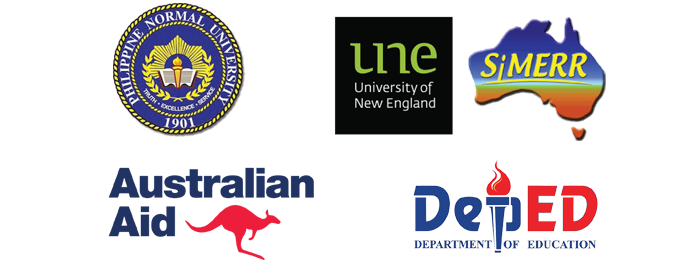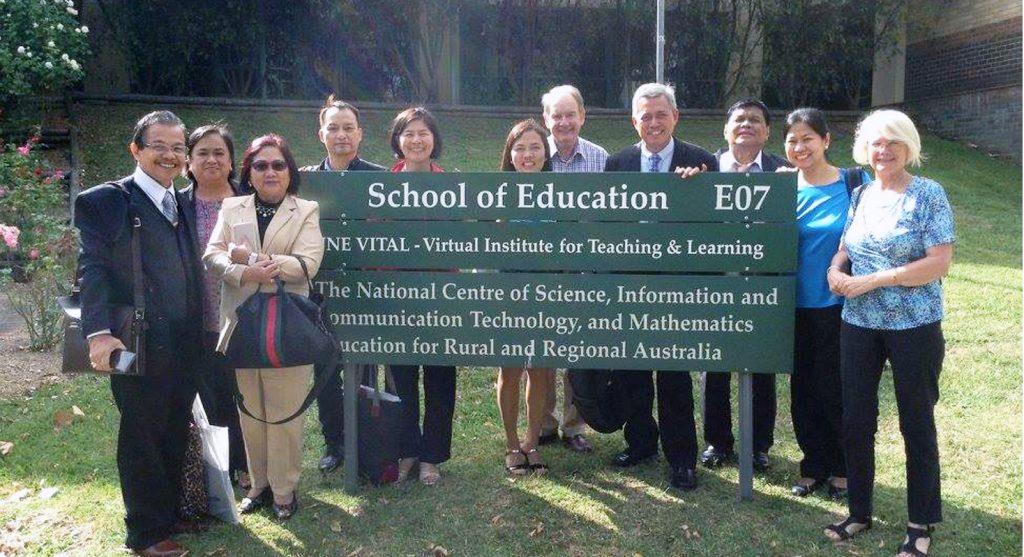RITQ: A testament to Philippines-Australia’s enduring friendship
 The longstanding friendship between the Philippines and Australia—celebrated every 22nd of May—has yielded significant benefits in improving the quality of education in the Philippines. RITQ is proud to have played an important role in realizing this valuable partnership, creating a massive impact for 900,000 teachers and 28 million students in the Philippines through its research-based innovations.
The longstanding friendship between the Philippines and Australia—celebrated every 22nd of May—has yielded significant benefits in improving the quality of education in the Philippines. RITQ is proud to have played an important role in realizing this valuable partnership, creating a massive impact for 900,000 teachers and 28 million students in the Philippines through its research-based innovations.
Since 2012, RITQ has undertaken national research studies focused on providing evidenced-based advice or recommendations to the Department of Education (DepEd) and the Commission on Higher Education (CHED). A major outcome of the work since then was the development of the Philippine Professional Standards for Teachers (PPST), signed into policy through DepEd Order No. 42, s. 2017 by the former DepEd Secretary Leonor Magtolis Briones, which triggered the realignment of other education agenda for both pre-service and in-service education with the standards. (Watch how RITQ was established)
To standardize the support provided by education leaders to teachers, the PPST was followed by RITQ’s development of the Philippine Professional Standards for School Heads (PPSSH) or DepEd Order No. 24, s. 2020, and the Philippine Professional Standards for Supervisors (PPSS) or DepEd Order No. 25, s. 2020.
In helping operationalize the PPST as a way to address challenges in the quality of our teachers, RITQ actively collaborated with DepEd in i) embedding the standards in its HR systems, ii) transforming the DepEd’s training academy—the National Educators Academy of the Philippines (NEAP), iii) developing similar standards for school heads and supervisors, iv) developing assessors programs to advance reforms on teacher and school leader quality, and v) developing a career progression system to guide the career movement and professional growth of teachers and school leaders.
RITQ provided technical assistance for the legislation of a national law—signed by President Rodrigo Duterte in April 2022 as Republic Act 11713 or the Excellence in Teacher Education Act—which now systematically links pre-service teacher education to in-service training.
RITQ also worked with teacher education institutions (TEIs) in ensuring that the standards for Career Stage 1 or Beginning Teachers are carefully embedded in teacher education programs.
Impactful work in the last 12 months
In recent months, RITQ has continually helped DepEd in aligning standards, enhancing organizational structures, and fostering collaborative learning environments. By embedding the PPST, PPSSH and PPSS within the DepEd career progression system, RITQ helps bring about a structured career path, facilitating skill acquisition and career advancement among educators. Through primer development and conduct of workshops, RITQ ensures that these standards resonate with stakeholders, promoting a shared vision of excellence in education.
Operationalizing the Teacher Education Council (TEC) marks another milestone in enhancing teacher quality. By facilitating organizational development and fostering synergy among key educational agencies, RITQ helps strengthen the coordination and effectiveness of initiatives aimed at professional development. Through workshops and consultations, RITQ helps clarify TEC’s role and streamline its functions, empowering it to catalyze positive change and innovation in teacher training and support.
RITQ’s collaboration with the National Educators Academy of the Philippines (NEAP) and the Bureau of Human Resource and Organizational Development (BHROD) helps refine DepEd’s career progression system and enhances its professional development framework. By providing technical assistance in program development and assessment tools refinement, RITQ helps create a conducive environment for continuous learning and growth among educators.
The collaboration with DepEd in developing the National Qualifying Examination for School Heads (NQESH) represents a significant step towards improving the quality of education leadership in the country. RITQ created three sets of NQESH to help assess the knowledge and skills of current and aspiring school leaders, ensuring effective leadership in schools.
Through the development of Professional Learning Packages (PLPs) and support for the National Learning Camp (NLC) since last year, RITQ helps equip teachers with resources and training to facilitate the development of critical thinking skills among students. The ongoing data analysis of the performance of learning camps already indicates their potential to enhance student knowledge, social-emotional skills, and overall well-being. RITQ also developed and submitted to DepEd this year the Learning Action Cell (LAC) component of NLC, a precursor to the development of Learning Action Cells (LACs) guides. By developing LAC guides and monitoring LAC conduct, RITQ aims to promote a supportive learning environment and facilitate professional growth among educators in the Philippines.
Through the longstanding friendship of Australia and the Philippines, RITQ’s research-based innovations continue to make a lasting national impact, helping to shape a brighter future for education in the Philippines, and ensuring that teachers and learners can thrive in an environment of excellence and innovation.
RITQ wishes all Filipinos and Australians worldwide a Happy Philippines-Australia Friendship Day!
(RITQ Communications)
https://www.ritq.ph/?p=4977FeatureFilAussieDay





